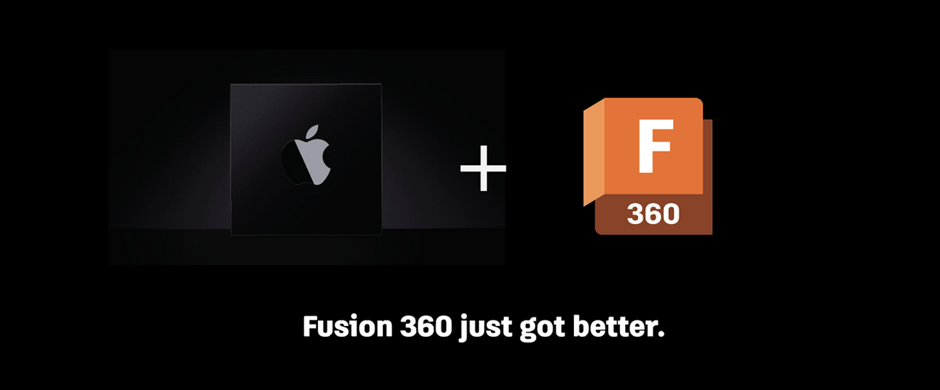With the release of the Fusion 360 July Update comes support for Apple Silicon. This will mean that anyone running on a M1/M2 chip can run fusion natively.

Enabling Support
On your first launch of Fusion after the update, the software will automatically recognize whether your machine has Apple Silicon or not. If your system detects an M1 or M2 processor, Fusion 360 will automatically run natively on that chipset without Rosetta 2.
The Improvements
Through internal testing, the Fusion Team have confirmed the below improvements:
“…We’ve seen noticeable improvements in 2 key areas: compute performance and battery life/usage. When it comes to compute speeds, modeling and assembly modeling tasks are generally 30% faster on Silicon compared to running Apple Silicon via Rosetta 2. Local Rendering also saw a noticeable boost in speed, enabling you to achieve a finished render faster than ever before. The other major benefit here is battery life; Fusion 360 now consumes almost 50% less power running on Apple Silicon.”
Everyone running Fusion on an Apple Silicon should start to notice a great improvement in the general functionality of Fusion. If you are running this configuration, we would love to hear of any improvements you notice.
For more information on this blog post, or if you have any other questions/requirements, please complete the below form:


